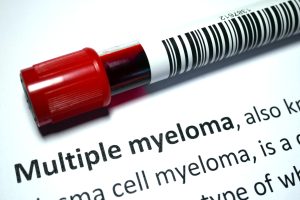
24 RCCA Physicians Named to 2025 Castle Connolly ‘Top Doctors’ List for Exceptional Cancer Care
A cancer diagnosis can be frightening. An individual may worry about how, or if, they will get better. The future becomes unclear and the strain
HIPAA Alert: Potential Data Breach Learn More
Questions on Oncology, Hematology and/or Infusion Clinical Services due to COVID-19 Crisis – CALL 833-698-1623
Important Information for Our Patients Regarding the Coronavirus.
RCCA Providing Area Cancer Patients with Access to Care During Coronavirus Outbreak
RCCA Offering Patients Virtual Visits During Coronavirus Pandemic
Cancer treatments are continually evolving and becoming ever more effective. One of the most promising approaches to cancer care is T cell therapy, a federally regulated treatment used to treat certain types of cancers. Here’s an explanation of T cell therapy, how you can benefit as a patient and a look into the potential future role of this form of cancer treatment.
T cell therapy, also known as chimeric antigen receptor (CAR) T cell therapy, is an emerging type of immunotherapy that involves a patient’s T cells, located in the immune system. During treatment, a patient’s T cells are modified so they are capable of attacking cancer cells. This is done with the infusion of a CAR, which enables a protein to bind to CD19, a gene found on cancerous B cells. The U.S. Food and Drug Administration (FDA) has approved T cell therapy to treat unmanageable or relapsed acute lymphoblastic leukemia for patients up to age 25, as well as certain types of aggressive and unmanageable non-Hodgkin lymphoma.

Two T cell therapies approved by the FDA are now in use, and more options are expected to become available as T cell therapy evolves. One agent, axicabtagene ciloleucel (Yescarta), is used for the treatment of large B cell non-Hodgkin lymphomas in adults, and in patients with recurrent cancer. This agent also is an option for patients whose cancer has not responded to at least two prior treatments.
The other available T cell therapy, tisagenlecleucel (Kymriah), aims to combat advanced acute lymphoblastic leukemia, a cancer found in blood-forming tissues. The agent, however, is only approved for patients younger than 25.

Since all types of T cell therapy use the body’s own immune cells to eliminate cancer cells, this form of treatment can provide a host of benefits to the patient. For one, documented evidence suggests that T cell therapy has a higher success rate compared with other attempted treatments such as chemotherapy. In one clinical trial, 83% of children studied achieved remission thanks to T cell therapy.
In addition, the injected T cells will remain in the body for long periods and continue to kill off cancer cells. That’s because each individual T cell is able to multiply into thousands of new T cells, even after just one treatment. In most cases, T cells can eliminate cancer cells for months or even years.
Based on its success in attacking tumors and cancer cells in some types of cancer, the medical community is highly optimistic about the future of T cell therapy. A wealth of findings from ongoing clinical trials suggest that T cell therapy could soon be extended to the treatment of other blood cancers. As more is learned about this practice, there are high hopes that T cell therapy can eventually be applied to other types of cancer, as well.
Though T cell therapy is relatively new, our team of board-certified experts at Regional Cancer Care Associates is finding success with this form of treatment in patients who are suffering from acute lymphoblastic leukemia or forms of non-Hodgkin lymphoma.
With dozens of locations across New Jersey, Maryland and Connecticut, taking the next step in your cancer care regimen can be accomplished right in your own backyard. For more information, contact Regional Cancer Care Associates today.

A cancer diagnosis can be frightening. An individual may worry about how, or if, they will get better. The future becomes unclear and the strain

A lung cancer diagnosis can be life-changing, bringing uncertainty and many questions about available treatments. At Regional Cancer Care Associates (RCCA), we understand the importance

Multiple myeloma (MM) is a rare type of blood cancer that often develops without early symptoms, making awareness of risk factors essential. Regional Cancer Care

Regional Cancer Care Associates is one of fewer than 200 medical practices in the country selected to participate in the Oncology Care Model (OCM); a recent Medicare initiative aimed at improving care coordination and access to and quality of care for Medicare beneficiaries undergoing chemotherapy treatment.